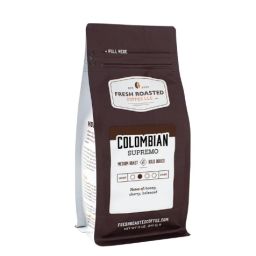
Understanding the Basics of Iced Coffee
The delightfully refreshing drink we know as iced coffee offers the appealing combination of a cool beverage and a caffeine kick. Originating from Algeria in the 19th century, this innovative beverage has permeated cultures and coffee shops around the globe.
Nowadays, variations of iced coffee are as diverse as the regions they come from, demonstrating this drink’s adaptability and enduring appeal.
In its most basic form, iced coffee consists of brewed coffee served over ice. The brewing method and the type of coffee beans used can greatly influence the final taste.
While this drink may initially appear simple, determining the appropriate brewing ratios, selecting the right beans, and mastering the cooling process without diluting the flavor, all contribute to the delightful complexity of iced coffee.
The remarkable versatility of this beverage allows for countless customizations – from the very basic, with sugar and cream, to the gourmet versions involving various flavored syrups and milks.
Buy the Famiworths Iced Coffee Maker and start doing your own Iced Coffee! Check it out on Amazon.

To fully appreciate the intricacies of iced coffee, it’s important to understand a few key concepts:
• Brewing Method: The brewing method is crucial in determining the taste and strength of your iced coffee. Traditional drip-brewed coffee, cold brew, and espresso are all common methods used.
• Coffee Beans: The type of bean can greatly influence the flavor profile of your drink. Robusta beans tend to be stronger and more bitter, while Arabica beans offer a smoother, sweeter flavor.
• Cooling Process: Cooling hot brewed coffee too quickly or directly over ice can result in diluted flavors. To avoid this, many prefer using cold brew or cooling their hot brewed coffee gradually before icing.
• Brew-to-water ratio: This refers to how much water is used compared to ground coffee during brewing. A higher ratio (more water) will yield a milder beverage; conversely, less water results in a stronger one.
Customizations also play an essential role in personalizing this versatile drink:
• Sweeteners: Sugar isn’t the only option for sweetening your iced coffee – honey, agave nectar or flavored syrups like vanilla or caramel can add unique tastes.
• Creamers/Milks: From traditional dairy creamer to various plant-based milks such as almond milk or oat milk – each adds its own distinct texture and flavor profile to your beverage
•Toppings/Extras: Whipped cream, chocolate drizzle or sprinkles on top? Why not! You could even add spices like cinnamon or nutmeg for extra depth of flavor.
By understanding these basics you’ll be well on your way towards mastering the art of making deliciously refreshing iced coffees at home – tailored exactly according to your preference.
Buy the Famiworths Iced Coffee Maker and start doing your own Iced Coffee! Check it out on Amazon.
The Nutritional Content of Iced Coffee
Typically, a 16-ounce serving of iced coffee contains around two calories, without any additives such as sugar, milk, or cream. These calories come from a negligible amount of protein and traces of minerals.
Iced coffee is virtually fat-free and sugar-free, making it a low-calorie drink that is suitable for most diets as long as extra additions are kept to a minimum.
However, once you begin adding sweeteners, milk, or cream, the calorie count of iced coffee will elevate rapidly. For instance, adding a tablespoon of sugar to your iced coffee tacks on an additional 49 calories.
Additionally, if you add cream, you’re looking at another 52 calories. Thus, while iced coffee by itself is a relatively low-calorie drink, the optional additives can make a significant difference in your daily caloric intake.
Potential Health Benefits of Iced Coffee

Iced coffee is more than a refreshing beverage. It’s packed with several beneficial compounds that can improve your health when consumed in moderation.
These include antioxidants, which battle harmful free radicals in the body, and chlorogenic acid, a natural compound found in coffee that may help reduce inflammation.
There is also emerging research pointing towards the cognitive benefits of iced coffee. The stimulating effects of caffeine can boost neurologic functions, improving alertness, mood, and cognitive performance.
Additionally, people who consume moderate amounts of coffee, including iced coffee, may have a lower risk of developing Alzheimer’s and Parkinson’s disease.
Read more about Does Adding Milk To Coffee Reduce Caffeine.
How Iced Coffee Affects Hydration Levels
A common misconception about coffee, iced coffee included, is that its diuretic properties can result in dehydration.
Caffeine, present in coffee, indeed has a mild diuretic effect which means it increases the production of urine, giving the impression of causing dehydration. But current research provides nuance to this belief.
Studies show that drinking moderate amounts of coffee does not significantly affect hydration status. The diuretic effect of caffeine gets neutralized by the water content in the coffee.
Moderate consumption of iced coffee, equating to about three to four cups a day, can contribute to the daily fluid intake supporting adequate hydration. It should not be considered a substitute for water but is a viable option for hydrating in warm weather while enjoying the refreshing taste.
The Role of Iced Coffee in Weight Management
When discussing weight management, iced coffee has the potential to play a significant role. One of its key components, caffeine, is known to increase the body’s metabolism.
Increased metabolic rate can support weight loss goals, as a faster metabolism burns calories more efficiently. Also, iced coffee can sometimes suppress appetite, potentially helping to decrease calorie consumption.
However, the method of preparation and choice of add-ins for your iced coffee can significantly impact its healthfulness.
Loaded iced coffees, brimming with added sugars, creamers, and syrups, will ultimately be high in calories, negating any potential weight loss benefits.
To enjoy iced coffee benefits while managing weight, it’s recommended to settle for a less decadent, more basic version, such as black or with a small amount of milk or a sugar substitute.
Buy the Famiworths Iced Coffee Maker and start doing your own Iced Coffee! Check it out on Amazon.
Caffeine Content in Iced Coffee: A Closer Look
Most individuals often associate coffee with its primary active ingredient: caffeine. It is important to understand that the caffeine content in iced coffee, however, can widely vary. Why is that so? The amount of caffeine largely depends on factors such as the type of coffee bean used, the brewing process, and the serving size.
It is estimated that an average serving of iced coffee – about 8 ounces – can contain anywhere from 30 to 200 milligrams of caffeine. As a point of comparison, a standard cup of regular hot coffee typically contains around 95 milligrams of caffeine.
While the variance is striking, it’s worth noting that a higher caffeine content doesn’t necessarily equate to better quality or flavor. Notably, extreme variations exist in caffeine levels due to the lack of standardization in the coffee industry which can lead to inconsistent caffeine intake from day to day.
It’s always important to be a discerning consumer and understand the potential implications, especially for those sensitive to caffeine or those trying to manage their intake.
Iced Coffee and its Impact on Digestive Health
Drinking iced coffee can either work in favor of or against your digestive system. It primarily depends on the individual’s constitution and how they react to caffeine. Certain people might find that their digestion is stimulated by the chilly brew.
The caffeine in coffee, a natural stimulant, can jump-start the digestive tract, leading to an increased frequency of bowel movements. Caffeine, a key component of coffee, can function as a natural digestive stimulant for some people.
However, on the opposite side of the spectrum, ongoing consumption of iced coffee may lead to gastrointestinal issues. An excess intake can potentially cause acidity or lead to gastrointestinal reflux disease (GERD).
Consuming large quantities regularly might result in a laxative effect, possibly leading to dehydration and an imbalance in the digestive system. Thus, moderation is crucial when consuming caffeinated beverages like iced coffee due to these potential gastrointestinal risks.
Read more about Can You Make Coffee With Milk Instead Of Water.
The Relationship between Iced Coffee and Heart Health
Iced coffee consumption can play a dynamic role in heart health. In moderate quantities, the caffeine found in it has been connected to beneficial cardiovascular effects.
This includes improved heart function and increased blood flow. However, excessive intake of iced coffee, similar to any other caffeinated beverage, can pose potential risks. These encompass irregular heart rhythms and increased blood pressure, which significantly impacts heart health.
Taking into account these factors, it’s essential to maintain a balanced consumption of iced coffee. Furthermore, individual health situations and tolerance levels to caffeine greatly influence the degree of impact on heart health.
For individuals with existing cardiovascular issues, reducing the intake of caffeinated beverages like iced coffee or consulting a health professional for dietary advice would be prudent.
Possible Side Effects of Consuming Iced Coffee
Despite the many potential health benefits of iced coffee, it’s equally crucial to be aware of its potential side effects. One of the more obvious issues arises from its caffeine content.
High amounts of caffeine can lead to symptoms like jitteriness, anxiety, rapid heartbeat, and trouble sleeping. Prolonged sleep deprivation can, in turn, lead to other health complications such as weakened immunity, mood disorders, and high blood pressure.
Another concern with iced coffee, particular those sold in coffee shops, is the high sugar content, which can contribute to weight gain. Additionally, overconsumption may increase the risk of developing type 2 diabetes.
Consuming too much sugar can also lead to tooth decay. A balanced and mindful coffee consumption can however mitigate these risks significantly. It’s worth noting that not everyone will experience these side effects.
The impact of coffee can vary widely depending on factors such as genetic metabolism of caffeine and general health status of the individual.
Buy the Famiworths Iced Coffee Maker and start doing your own Iced Coffee! Check it out on Amazon.
Making a Healthier Iced Coffee at Home
Opting to make your iced coffee at home not only allows you to control the ingredients but could also contribute significantly in cutting down excess sugar and cream often linked with commercial variants.
It’s crucial to handpick the ingredients, primarily the additives, to ensure staying within the healthy boundaries. Choosing alternatives like skim milk or almond milk over full-fat dairy can considerably bring down the calorie count.
Additionally, consider making use of natural sweeteners – such as honey or stevia – in place of piles of unwanted sugar offering a decent equilibrium between health and flavor.
It is often overlooked that the coffee beans used also hold great importance. Opting for organic, naturally sourced coffee beans can have a significant impact on the overall quality and healthfulness of your drink.
These beans tend to retain more antioxidants which are beneficial for your health. Moreover, the lack of pesticides and artificial fertilizers in their growing process makes them a far safer choice coupled with a richer flavor.
Finally, keeping an eye on the portion size can enable you to savor the refreshing power of your homemade iced coffee, without the fear of going overboard with calories and caffeine.
Read more about Can i use Cashew Milk In Coffee.
FAQS
What is the basic preparation method for iced coffee?
The basics of iced coffee involve brewing a strong coffee, allowing it to cool, and then serving it over ice. Sugar, milk, or cream can be added to taste.
How nutritious is iced coffee?
The nutritional content of iced coffee depends on what you add to it. Alone, it contains no calories, but adding sugar, milk, or cream will increase its calorie and fat content.
What are the potential health benefits of iced coffee?
Iced coffee can boost metabolism, improve mental focus, and reduce the risk of certain diseases like diabetes and Parkinson’s disease.
Does iced coffee affect hydration levels?
Yes, iced coffee can contribute to dehydration due to its caffeine content which has a diuretic effect. It’s important to also drink water when consuming iced coffee.
Check out How to Make Good Coffee in this post.
How does iced coffee relate to weight management?
Iced coffee can aid in weight management by boosting metabolism. However, adding sugar and cream can add extra calories and fats.
What is the caffeine content in iced coffee?
The caffeine content in iced coffee varies based on the type of coffee bean, brewing method, and serving size. On average, a serving of iced coffee can contain 30-200mg of caffeine.
How does iced coffee affect digestive health?
Iced coffee, due to its caffeine content, can stimulate the digestive system and potentially cause discomfort in some people.
Is there a relationship between iced coffee and heart health?
Moderate coffee consumption, including iced coffee, is associated with a decreased risk of heart disease. However, excessive consumption may increase heart rate and blood pressure.
What are some potential side effects of consuming iced coffee?
Potential side effects of consuming iced coffee include insomnia, digestive problems, rapid heart rate, and potential dependence on caffeine.
How can I make a healthier iced coffee at home?
You can make a healthier iced coffee at home by using less sugar, opting for low-fat or plant-based milks, and avoiding whipped cream or other high-calorie toppings.









